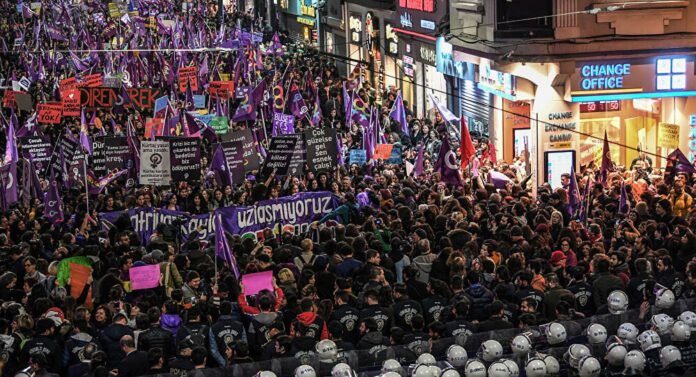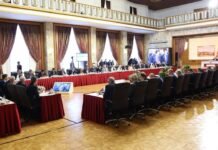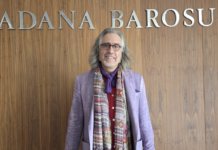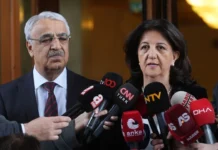United Nations special rapporteurs have expressed concern regarding allegations of the suppression of women’s rights defenders in Turkey, accusing the authorities of misusing the penal code and counterterrorism laws to silence critical voices.
In a letter dated August 7, published after the Turkish government’s October 6 response, three UN special rapporteurs and the Working Group on discrimination against women and girls stated that criminalization and harassment of women’s human rights defenders severely restrict their rights to freedom of association, peaceful assembly and expression. They pointed to the misuse of the Counterterrorism Law and the Turkish Penal Code to classify women’s rights defenders as members of terrorist organizations.
Special Rapporteur on human rights defenders Mary Lawlor, Special Rapporteur on the rights to freedom of peaceful assembly and of association Gina Romero and Special Rapporteur on the promotion and protection of human rights and fundamental freedoms while countering terrorism Ben Saul and the working group members cited incidents involving members of organizations such as the We Will Stop Femicide Platform, Feminist Gündem, the Tarlabaşı Community Center, the Rosa Women’s Association and the Women’s Time Association.
Reported practices include violent police interventions, arrests, ill-treatment in custody, judicial harassment, arbitrary detentions, restricted access to lawyers and lawsuits to dissolve organizations.
They also cited lawsuits filed by the Istanbul Governor’s Office to dissolve the We Will Stop Femicide Platform and the Tarlabaşı Community Center along with investigations into Kurdish women’s rights groups the Rosa Women’s Association and the Women’s Time Association.
The UN rapporteurs called on the Turkish government to urgently review the counterterrorism legislation for compliance with Turkey’s obligations under international human rights law and to guarantee that human rights defenders can exercise their rights in a safe environment.
In its response, dated October 6, the Turkish government invoked legal provisions on national security and public order, declaring women’s marches “unlawful” solely because no prior notification had been submitted. The authorities further portrayed Kurdish women’s rights groups as extensions of the outlawed Kurdistan Workers’ Party (PKK), alleging that they sought to integrate women into the PKK’s structure and conceal terrorism-related activities.
The increase in the number of violations of women’s rights is alarming, with a rising number of femicide cases, bans on events organized by rights groups and detentions of women protesting gender-based violence.
In a move that attracted national and international outrage, Turkish President Recep Tayyip Erdoğan used a presidential decree to withdraw the country from an international treaty in March 2021 that requires governments to adopt legislation prosecuting perpetrators of domestic violence and similar abuse as well as marital rape and female genital mutilation.
The Council of Europe Convention on Preventing and Combating Violence against Women and Domestic Violence, better known as the Istanbul Convention, is an international accord designed to protect women’s rights and prevent domestic violence in societies and was opened to the signature of Council of Europe member states in 2011. Turkey had been a party to the convention until 2021. Erdoğan’s allies have also been calling for further rollbacks, urging the repeal of a domestic law that stipulates protection mechanisms for women who either have suffered or are at risk of suffering violence.















